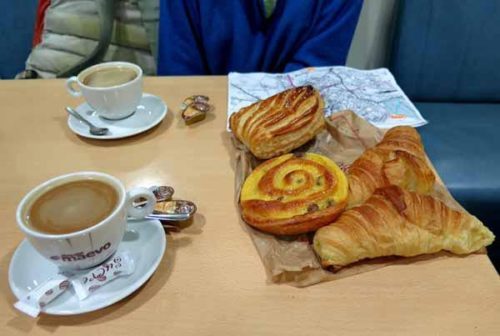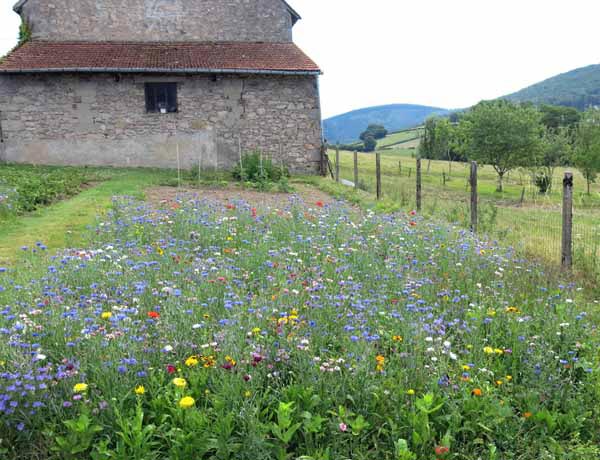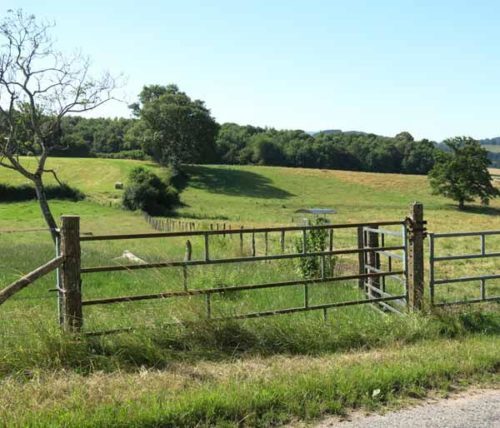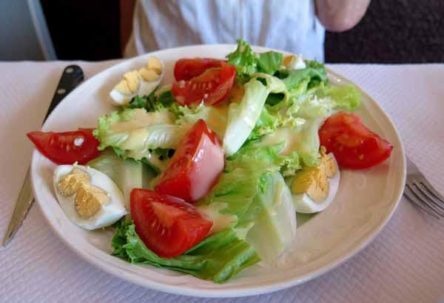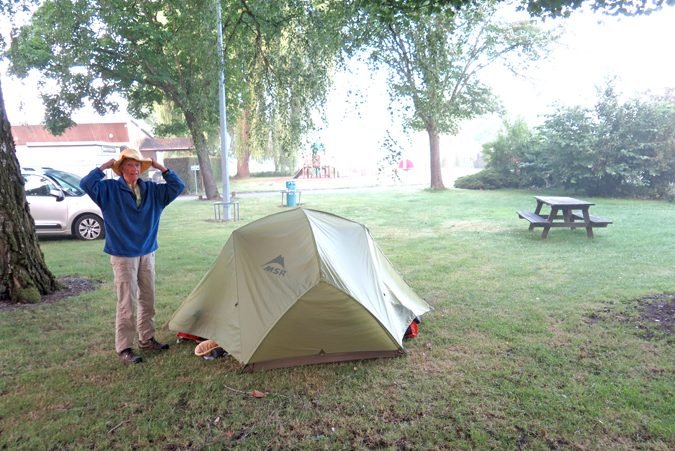
Tuesday, 4 July 2017
Distance 20 km
Duration 4 hours 20 minutes
Ascent 188 m, descent 196 m
Map 135 of the
By 6:30 am we were up and packed. Mist from the river had crept over the lawns and put a chill in the air, so we were well rugged up as we set off for breakfast in town.
The bar that had disappointed us the previous afternoon was now open, with the sun slanting in promisingly on its outdoor tables.
However, we decided to go inside, having first walked an extra few steps to the boulangerie on the corner and returned with the usual delectable array.

The walk began in earnest at about 8 am. We went past the bus station and the train station, then an area of apartment blocks lined with a classic example of the French arborist’s art – plane trees hacked to within an inch of their lives, with barely a leaf, and it was the middle of summer.
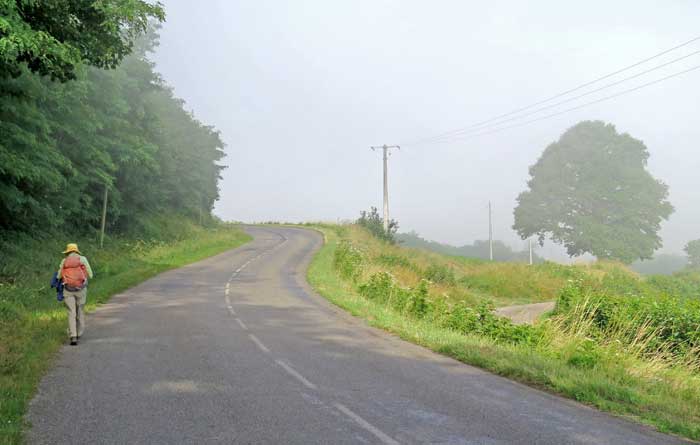
Beyond that, the dreary factories and houses of Autun thinned out, and we walked through a rich pastoral landscape until we joined the D46, a slightly larger road that we intended to leave after a few hundred metres.
But when we got to the side-road, we saw that it was descending fast towards the river, from where it would have to come back up again, so we decided that the road we were on would do nicely, especially as we had not seen a car since we left the suburbs.
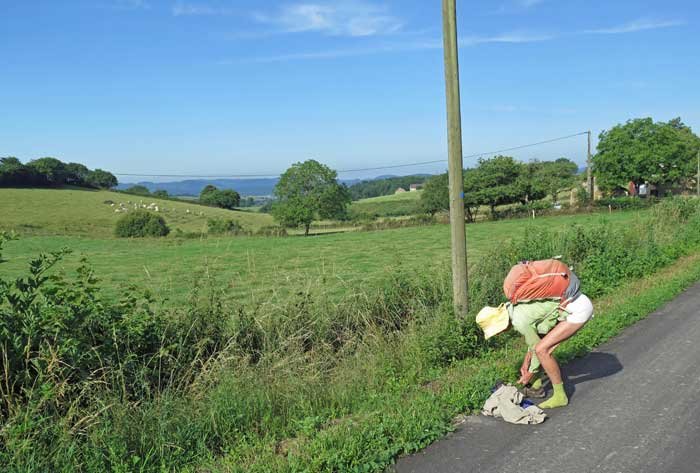
It was still slightly misty but the sun was rapidly burning through it. By the time we turned onto the D222, I was so hot that I had to stop and change into my shorts, which I did with no loss of modesty because of the absence of traffic.
Soon after that, we really did turn off, at the farm called les Charlots, looking for a track that went down and rejoined the bitumen a couple of kilometres further on. It was no shorter, but it looked more enjoyable.
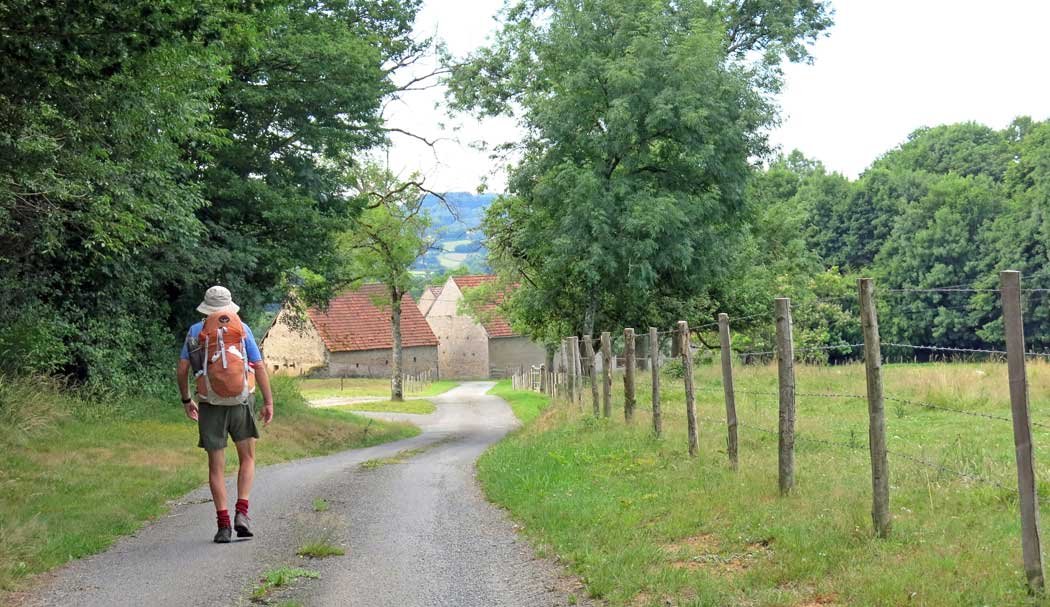
The farm buildings were a cluster of charming stone cottages, outside one of which was a “jachère fleurie” – a piece of fallow land planted with flowers.
There was no sign of life, apart from a friendly dog who accompanied us a bit of the way.
We strolled around the back of a small château (hidden by shrubbery) and kept going down through the fields until we came to a fork.
The main wheel track went to the left, but our way was to the right, through a gate.
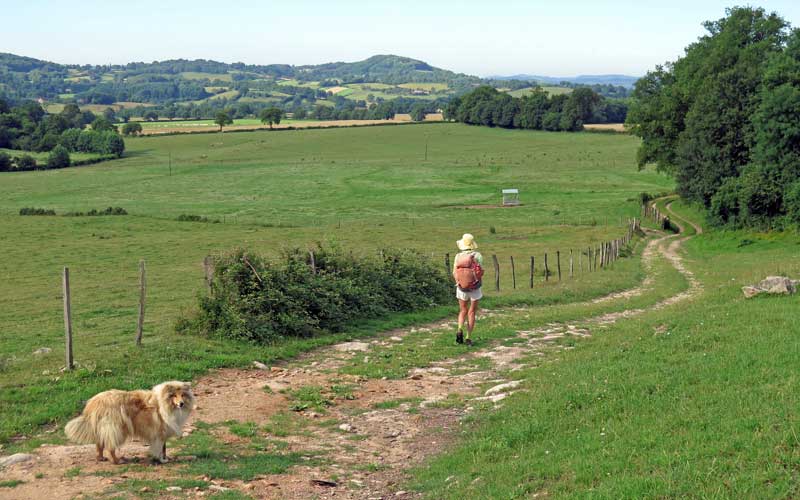
Evidently the farmer did not come this way much, although there was a fine crop of wheat waiting to be harvested.
The track became indistinct, and when we came to a patch of forest it dissipated into a series of what looked like animal paths.
We could not see a clear way through, so we decided to turn right and follow the fringe of the forest back to the road, which was not far away across the field. This was easier said than done.

Unseen until we were on the brink of it, there was a small, eroded watercourse choked with barbed wire and brambles, completely blocking our passage.
we were determined to find a break in these prickly defences, so we turned uphill, but never saw one, and eventually arrived back on the wheel track near the château, a few metres from where we had been half an hour earlier.
Not for the first time this year, we had gone around three-and-a-half sides of a square.
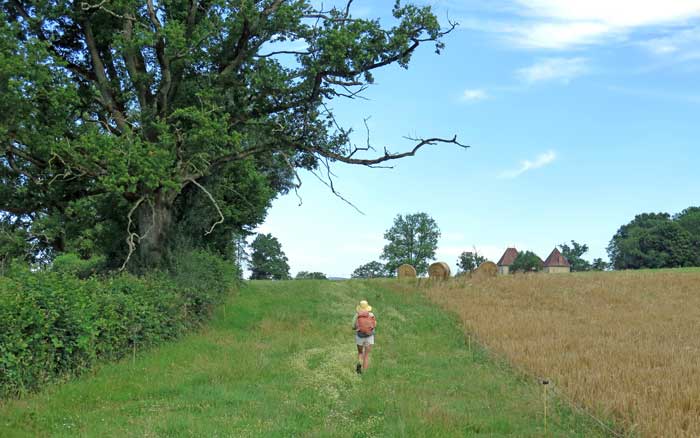
This time we retired to the bitumen road, and went past another château (Charmoy), at which point we had the dubious pleasure of seeing the place where we had failed to cross the bramble-choked stream, not a hundred metres away.
However it was good to be striding along the open road, which continued to descend until it reached the river (the same river Arroux that we had been following, more or less, for the past two days, and would continue to do for two more).
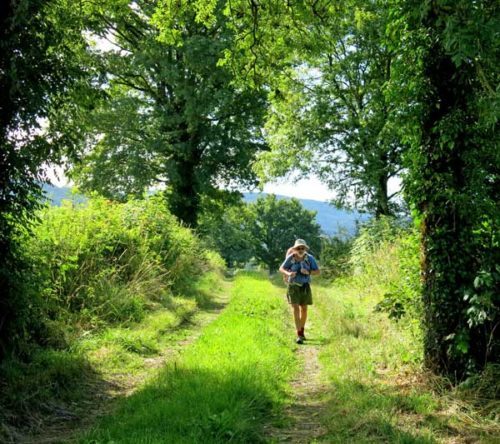
We tracked along beside it, as did the railway line, for a few kilometres, at which point we came to the first houses of Étang-sur-Arroux, which was our destination for the day.
It was an awkward little village, cut in half by the river and also by the highway (the D994) that sliced through it, with houses strung out along it like ill-assorted teeth on a string.
Our first requirement was a bar, and we found one wedged into a gap behind the main intersection, a victim of some realignment when the highway was put through.
What had formerly been the main street was now just an alleyway, with the raised terrace of the bar blocking it. Nevertheless, once we had climbed the stairs, we had a delightful round of coffee there among the pot plants.
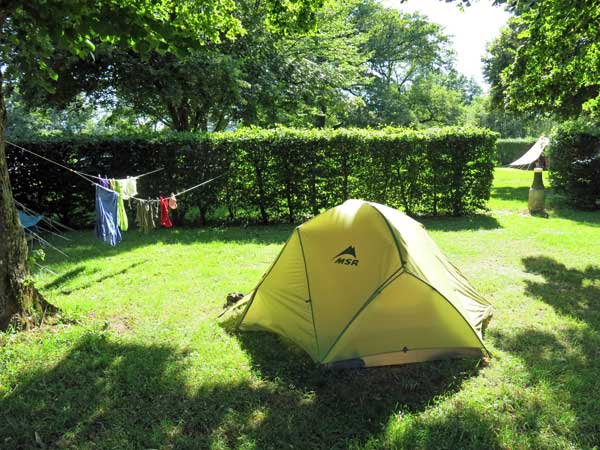
The camping ground was half a kilometre down the highway, on the river. The long back garden of one of the old houses had been converted into a pleasantly shaded camping ground.
In the office, the woman in charge was angrily haranguing one of her customers, a young fellow who had done the wrong thing with a washing line, tying it onto to a signpost in contravention of the rules. He looked suitably contrite and eventually she let him go.
Turning to us, she reverted to English and it turned out that she was Dutch, as is often the case with owners of French camping grounds.
We paid our €17 and settled down in a grassy nook on the edge of the central lawn. Showers and an afternoon nap followed.
Keith’s iPod was running low, so he attached it to a powerpoint in the ablutions block, the customary way that campers replenish their devices. Often there are four of five of them lying on shelves above the washbasins.
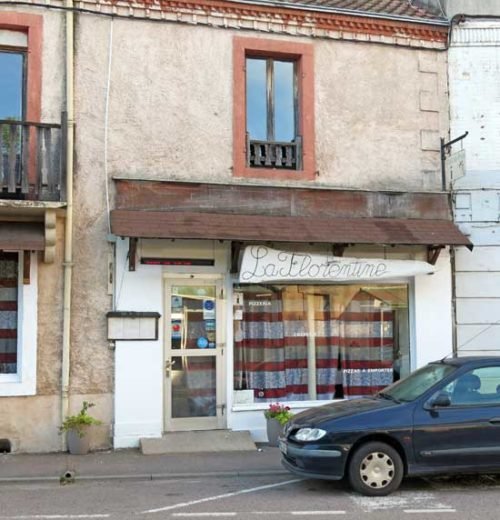
Before we set off to dinner in the village, we went to retrieve the iPod and discovered that it was missing. A cleaner who was mopping the floor nearby said that he had taken it to the office, as instructed by madame, so we presented ourselves there, and received a monumental tongue-lashing.
We had said that we did not require electricity, and here we were robbing her – we were dishonest, we were thieves, it was despicable behaviour. In vain did we reply that it was normal practice in other camping grounds.
We even offered to pay (it would have been all of 20c), which she waved away contemptuously, but in the end she did hand over our iPod.
Remembering the poor fellow that she had monstered earlier, we came to the conclusion that she just enjoyed ranting at people under the cloak of righteous indignation.
Back in the village, we walked past the classy Les Gourmets (we did not have the clothes for a place like that) and pressed on to la Florentine, just before the bridge.
This was a modest little place with brown awnings and a comfortable atmosphere. It was a pizzeria but not exclusively so, and we had our usual fare – salads to start with, followed by steak and vegetables.
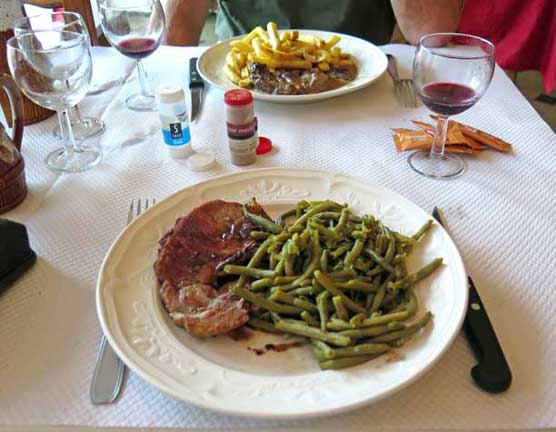
The salads were simple but fresh and crisp, adorned with double-yolker boiled eggs, and the main courses were also simple but delicious. Washed down by local red wine they made a fine evening meal.
We had thought of having a rest day in Étang-sur-Arroux, but the thought of being in thrall to the domineering Dutchwoman for any longer than necessary was not very appealing. The rest day was postponed yet again (and we never actually got round to having one).
Previous day: Arnay-le-Duc to Autun
